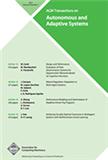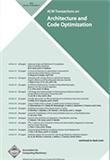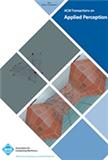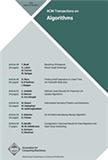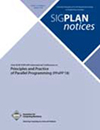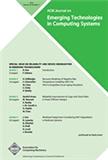INTERNATIONAL JOURNAL OF COOPERATIVE INFORMATION SYSTEMS
SCIE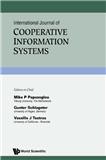
- 雜志名稱:國(guó)際合作信息系統(tǒng)雜志
- 簡(jiǎn)稱:INT J COOP INF SYST
- 期刊ISSN:0218-8430
- 大類研究方向:工程技術(shù)
- 影響因子:0.769
- 數(shù)據(jù)庫(kù)類型:SCIE
- 是否OA:No
- 出版地:SINGAPORE
- 年文章數(shù):13
- 小類研究方向:工程技術(shù)-計(jì)算機(jī):信息系統(tǒng)
- 審稿速度:>12周,或約稿
- 平均錄用比例:容易
官方網(wǎng)站:http://www.worldscinet.com/ijcis/
投稿網(wǎng)址:http://www.editorialmanager.com/ijcis/default.asp?pg=login.asp
INTERNATIONAL JOURNAL OF COOPERATIVE INFORMATION SYSTEMS
英文簡(jiǎn)介The paradigm for the next generation of information systems (ISs) will involve large numbers of ISs distributed over large, complex computer/communication networks. Such ISs will manage or have access to large amounts of information and computing services and will interoperate as required. These support individual or collaborative human work. Communication among component systems will be done using protocols that range from conventional ones to those based on distributed AI. We call such next generation ISs Cooperative Information Systems (CIS).The International Journal of Cooperative Information Systems (IJCIS) addresses the intricacies of cooperative work in the framework of distributed interoperable information systems. It provides a forum for the presentation and dissemination of research covering all aspects of CIS design, requirements, functionality, implementation, deployment, and evolution. IJCIS will publish papers describing original ideas and new results, on topics that include, but are not limited to:CIS Principles - cooperation, intelligence, autonomy.Architectures and communication protocols for CIS - open architectures, blackboard systems, multiagent planning frameworks, speech acts, advanced information services in support of interoperability.Information Agents - models and organisations, application of information agent technology in virtual laboratories, concurrent engineering and other groupware frameworks.Large-Scale Knowledge Bases for CIS-sharing and reuse of worldwide knowledge, knowledge of knowledge structures, trends and applications in this area.Core Technology for CIS - open distributed computing architectures, type systems, object models and advanced transaction models for interoperability, advanced query models and languages, active databases.Theoretical Frameworks and Formal Methods for CIS - knowledge management, view management, high-level communication protocols, workflows, flexible transactions, negotiation and information agents.CIS Implementation Techniques - programming languages for CISs, interoperability issues in distributed heterogeneous information bases, multi-database transaction scheduling and execution, rule bases.Integration Challenges - interoperability, multiple paradigms, forms of transparency, object and transaction model integration, global information (e.g., schemas, directories, repositories), semantic interoperability, negotiation, optimisation (e.g., queries, indexing, ...).Information Modelling and Reasoning techniques for CISs - multiple perspective representations, non-deductive forms of inference (inductive, analogical, case-based, ...), multiagent planning and problem solving.Advanced CIS Programming - workflows, transactions, information requests, policy/rule-driven systems, mega-programming, multiple programming paradigms.Information Engineering for CIS - information acquisition, classification and retrieval techniques and tools, information sharing and management.CIS Evolution - concepts, tools, and techniques for CIS design, development, and maintenance.Re-Engineering - concepts, tools, and methodologies; re-engineering legacy and new information systems into CISs.Business Process Management Systems: Architectures, Concepts, Technology (e.g. analysis, modelling, reengineering and evaluation and business processes).
INTERNATIONAL JOURNAL OF COOPERATIVE INFORMATION SYSTEMS
中文簡(jiǎn)介下一代信息系統(tǒng)(ISS)的范例將涉及分布在大型、復(fù)雜計(jì)算機(jī)/通信網(wǎng)絡(luò)上的大量ISS。這樣的ISS將管理或訪問(wèn)大量的信息和計(jì)算服務(wù),并將根據(jù)需要進(jìn)行互操作。這些支持個(gè)人或協(xié)作的人工工作。組件系統(tǒng)之間的通信將使用從傳統(tǒng)協(xié)議到基于分布式人工智能的協(xié)議來(lái)完成。我們稱之為下一代ISS合作信息系統(tǒng)(CIS)。《國(guó)際合作信息系統(tǒng)雜志》(IJCIS)論述了分布式可互操作信息系統(tǒng)框架內(nèi)合作工作的復(fù)雜性。它為展示和傳播研究提供了一個(gè)論壇,涵蓋CIS設(shè)計(jì)、需求、功能、實(shí)現(xiàn)、部署和演進(jìn)的所有方面。IJCIS將發(fā)表論文,描述原始想法和新成果,主題包括但不限于:獨(dú)聯(lián)體原則——合作、情報(bào)、自主。CIS的體系結(jié)構(gòu)和通信協(xié)議-開(kāi)放式體系結(jié)構(gòu)、黑板系統(tǒng)、多代理規(guī)劃框架、語(yǔ)音行為、支持互操作性的高級(jí)信息服務(wù)。信息代理-模型和組織,虛擬實(shí)驗(yàn)室中信息代理技術(shù)的應(yīng)用,并行工程和其他群件框架。大型知識(shí)庫(kù),用于獨(dú)聯(lián)體共享和重用全球知識(shí)、知識(shí)結(jié)構(gòu)知識(shí)、這一領(lǐng)域的趨勢(shì)和應(yīng)用。CIS的核心技術(shù)-開(kāi)放分布式計(jì)算體系結(jié)構(gòu)、類型系統(tǒng)、對(duì)象模型和互操作性高級(jí)事務(wù)模型、高級(jí)查詢模型和語(yǔ)言、活動(dòng)數(shù)據(jù)庫(kù)。CIS的理論框架和正式方法-知識(shí)管理、視圖管理、高級(jí)通信協(xié)議、工作流、靈活的事務(wù)、協(xié)商和信息代理。CIS實(shí)現(xiàn)技術(shù)-CIS的編程語(yǔ)言,分布式異構(gòu)信息庫(kù)中的互操作性問(wèn)題,多數(shù)據(jù)庫(kù)事務(wù)調(diào)度和執(zhí)行,規(guī)則庫(kù)。集成挑戰(zhàn)-互操作性、多個(gè)范例、透明形式、對(duì)象和事務(wù)模型集成、全局信息(如模式、目錄、存儲(chǔ)庫(kù))、語(yǔ)義互操作性、協(xié)商、優(yōu)化(如查詢、索引等)。CISS的信息建模和推理技術(shù)-多視角表示、非演繹推理形式(歸納、類比、基于案例等)、多代理規(guī)劃和問(wèn)題解決。高級(jí)CI編程-工作流、事務(wù)、信息請(qǐng)求、策略/規(guī)則驅(qū)動(dòng)系統(tǒng)、大型編程、多個(gè)編程范例。信息工程:信息獲取、分類和檢索技術(shù)和工具、信息共享和管理。獨(dú)聯(lián)體演進(jìn)-獨(dú)聯(lián)體設(shè)計(jì)、開(kāi)發(fā)和維護(hù)的概念、工具和技術(shù)。重新設(shè)計(jì)-概念、工具和方法;將遺留和新信息系統(tǒng)重新設(shè)計(jì)成CIS。業(yè)務(wù)流程管理系統(tǒng):架構(gòu)、概念、技術(shù)(例如分析、建模、重新設(shè)計(jì)和評(píng)估以及業(yè)務(wù)流程)。
精選同類領(lǐng)域期刊,熱門(mén)推薦輕松get~
-
- ACM Transactions on Autonomous and Adaptive Systems
- 期刊ISSN:1556-4665
- 大類研究方向:工程技術(shù)
- 影響因子:
- 數(shù)據(jù)庫(kù)類型:SCIE
- 咨詢投稿
-
- ACM Transactions on Architecture and Code Optimization
- 期刊ISSN:1544-3566
- 大類研究方向:工程技術(shù)
- 影響因子:1.444
- 數(shù)據(jù)庫(kù)類型:SCIE
- 咨詢投稿
-
- ACM Transactions on Applied Perception
- 期刊ISSN:1544-3558
- 大類研究方向:工程技術(shù)
- 影響因子:
- 數(shù)據(jù)庫(kù)類型:SCIE
- 咨詢投稿
-
- ACM Transactions on Algorithms
- 期刊ISSN:1549-6325
- 大類研究方向:工程技術(shù)
- 影響因子:
- 數(shù)據(jù)庫(kù)類型:SCIE
- 咨詢投稿
-
- ACM SIGPLAN NOTICES
- 期刊ISSN:0362-1340
- 大類研究方向:工程技術(shù)
- 影響因子:
- 數(shù)據(jù)庫(kù)類型:
- 咨詢投稿
-
- ACM Journal on Emerging Technologies in Computing Systems
- 期刊ISSN:1550-4832
- 大類研究方向:工程技術(shù)
- 影響因子:2.013
- 數(shù)據(jù)庫(kù)類型:SCIE
- 咨詢投稿
精選常見(jiàn)問(wèn)題,答疑解惑輕松get~
- 三篇ssci論文怎么同時(shí)投出去
- 中文核心和sci哪個(gè)影響力更大
- 中科院一區(qū)和JCR一區(qū)期刊占比區(qū)別
- 發(fā)ssci如何快速找合適的期刊
- 資源保護(hù)方面論文投sci指導(dǎo)
- 外貿(mào)行業(yè)論文發(fā)ssci周期長(zhǎng)嗎
- 國(guó)外的sci投到錄用一般多久
- ssci期刊國(guó)內(nèi)認(rèn)可度
- 核能應(yīng)用論文翻譯英文發(fā)sci容易的方法
- 人口老齡化研究論文符合ssci領(lǐng)域嗎
- sci開(kāi)源和不開(kāi)源分別是什么意思?有什么影響?
- ssci發(fā)表是高水平學(xué)術(shù)論文嗎
- 生態(tài)修復(fù)主題英文論文會(huì)收錄哪些數(shù)據(jù)庫(kù)
- 哲學(xué)專業(yè)論文發(fā)英文期刊
- 中科院sci四個(gè)區(qū)的劃分
- ssci期刊和sci期刊的區(qū)別
- ESCI和SCIE要分清
- ssci送審論文多久出結(jié)果
- ssci論文二作有用嗎
- 水土保持類英文期刊好選嗎
- ssci期刊論文一定會(huì)檢索嗎
 投稿咨詢
投稿咨詢

